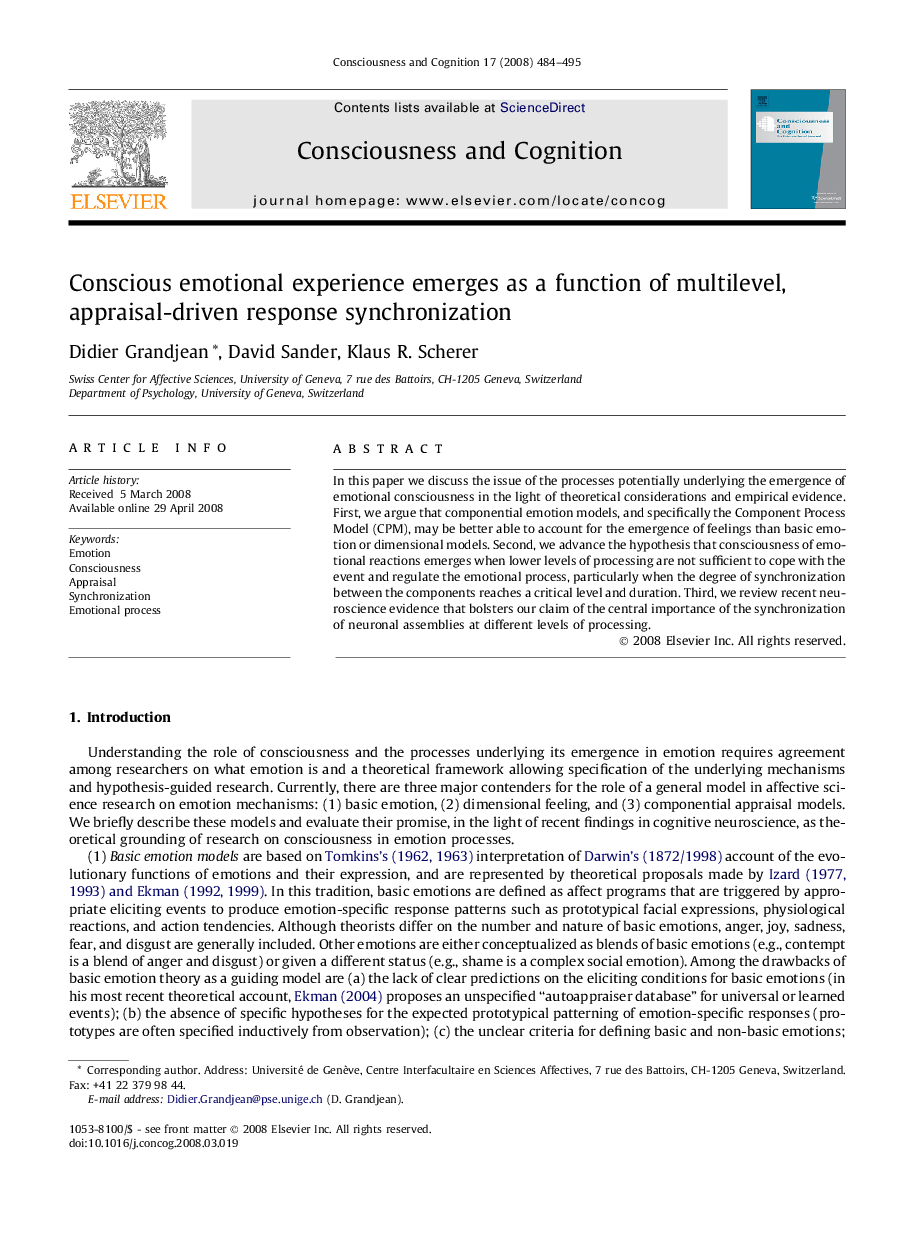| Article ID | Journal | Published Year | Pages | File Type |
|---|---|---|---|---|
| 927665 | Consciousness and Cognition | 2008 | 12 Pages |
In this paper we discuss the issue of the processes potentially underlying the emergence of emotional consciousness in the light of theoretical considerations and empirical evidence. First, we argue that componential emotion models, and specifically the Component Process Model (CPM), may be better able to account for the emergence of feelings than basic emotion or dimensional models. Second, we advance the hypothesis that consciousness of emotional reactions emerges when lower levels of processing are not sufficient to cope with the event and regulate the emotional process, particularly when the degree of synchronization between the components reaches a critical level and duration. Third, we review recent neuroscience evidence that bolsters our claim of the central importance of the synchronization of neuronal assemblies at different levels of processing.
